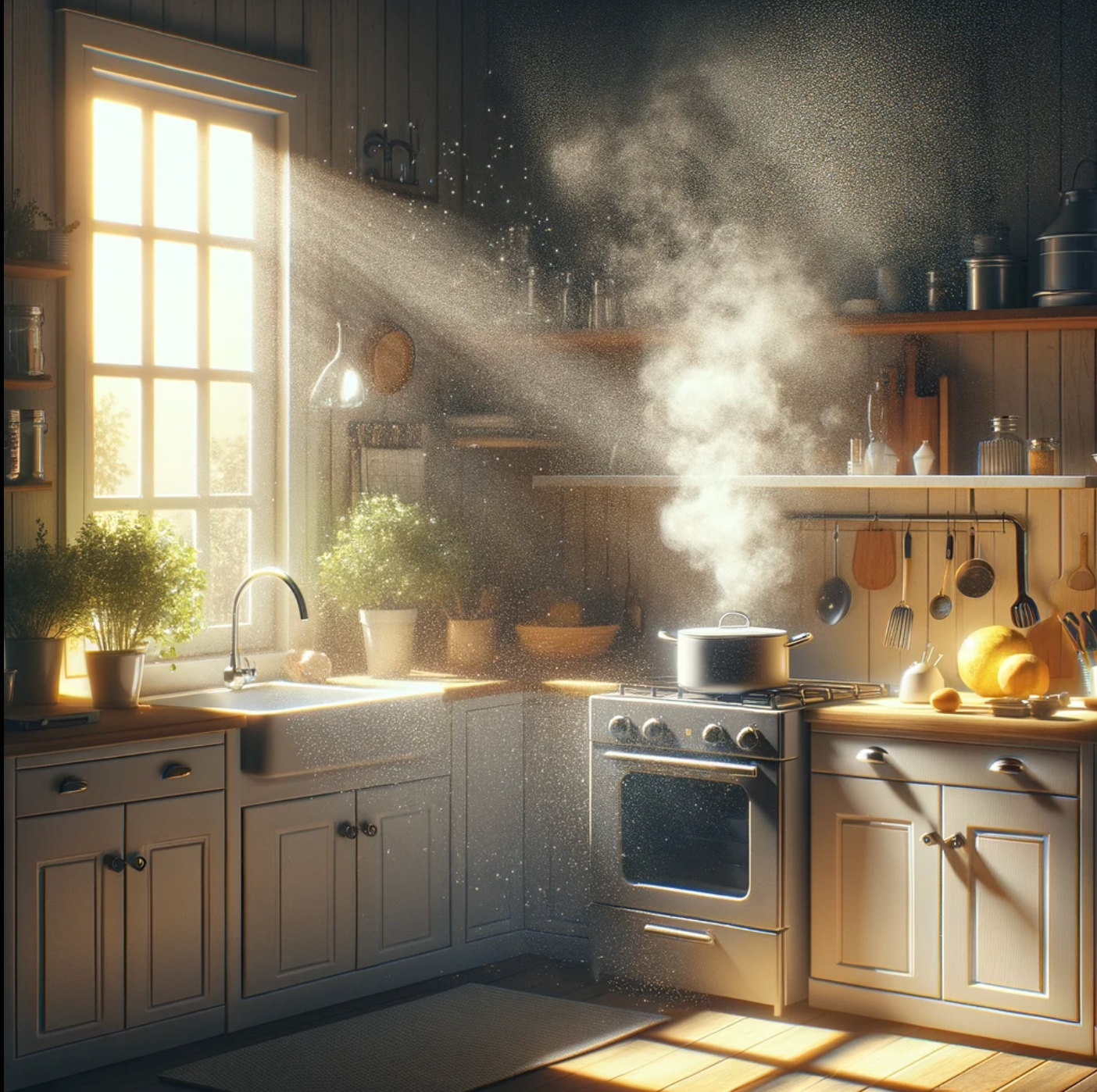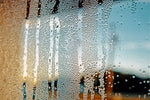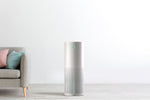Air Purifier Vs Humidifier: Purpose, Differences, Benefits, and More

The average person spends about 90% of their time indoors, so the house is the primary source of air pollution. As people focus more on indoor air quality, they show a growing interest in devices like air purifiers and humidifiers:
- Air purifiers filter airborne contaminants, removing pollutants such as dust, pollen, mold, and pet dander from the air.
- Humidifiers help solve the problem of dry air. They add moisture and help with dry skin and irritated sinuses, especially in dry climates.
Indoor air quality varies from home to home and can even fluctuate throughout the day. Let’s answer one of the main questions: Does your home need an air purifier or a humidifier?
Difference Between Air Purifiers and HumidifiersThe difference between an air purifier and a humidifier isn’t always clear to everyone. Below is a straightforward comparison to help you understand their distinct roles and benefits.
|
Air Purifier |
Humidifier |
|
|
Primary Function |
Filters and removes airborne particles (dust, allergens, pollutants, bacteria, etc.) |
Adds moisture to the air to combat dryness |
|
Potential Downsides |
Requires regular filter replacements. |
Over-humidification can lead to mold growth and, if water contains impurities like chlorine, these can be released into the air. |
|
Best For |
Improving air quality by removing harmful particles |
Alleviating dry air and preventing dry skin, sinus irritation |
|
Maintenance |
Requires regular filter replacements |
Requires cleaning to prevent mold/bacteria |
Humidifiers are often used in homes to ease the discomfort of dry noses, throats, lips, and skin. By adding moisture to dry air, they also help with common winter issues like:
- Static electricity
- Peeling wallpaper
- Cracks in paint and furniture
Too much moisture can lead to the growth of mold in your home. For example, dust mites are tiny creatures that trigger allergic reactions to household dust, and mold. The optimal indoor humidity level is generally between 45% and 55%, as shown in the chart below.
Air purifiers are commonly used in homes to improve indoor air quality by reducing allergens, dust, smoke, and other pollutants. They help alleviate issues such as:
- Allergies and asthma symptoms
- Unpleasant odors
- Respiratory discomfort
Let’s take an even closer look at the differences of these devices.
-
Primary Function
Air Purifier
An air purifier removes harmful particles like dust, pollen, pet dander, mold, smoke, cooking particles, and odors from the air. It improves air quality, helps with allergies and respiratory issues, and enhances sleep quality by creating a cleaner breathing environment.
Humidifier
A humidifier adds moisture to the air, relieving dryness in the skin, throat, and sinuses. While useful in dry conditions, it doesn’t filter pollutants and can lead to excess humidity if overused.
-
Impact on Air Quality
Air Purifier
Extremely effective at removing airborne contaminants, including dust, allergens, mold, PM2.5 (fine particulate matter), toxins, and volatile organic compounds (VOCs), significantly improving overall air quality and creating a healthier indoor environment.
Humidifier
While not designed to remove pollutants, a humidifier can help settle dust particles and reduce their circulation. It also prevents issues caused by dry air, such as cracks in paint or peeling wallpaper.
-
Effect on Humidity
Air Purifier
Air purifiers don’t directly impact humidity levels, the primary function is to filter pollutants. By improving air circulation and airflow, an air purifier filters airborne mold, which often occurs in spaces with excessive humidity.
Humidifier
A humidifier increases the moisture level in the air. While helpful in dry environments, too much humidity can lead to significant problems, such as mold growth, dust mites, and mildew. These issues can negatively impact indoor air quality and even cause structural damage over time. Managing humidity carefully is essential to avoid these risks.
-
Health Effect
Air Purifier
Air purifiers are ideal for people with allergies, asthma, or sensitivities to airborne pollutants. Removing dust, pollen, smoke, mold, and other particles reduces respiratory issues and improves sleep quality by providing cleaner, fresher air.
Humidifier
Humidifiers help prevent discomfort caused by dry air, such as dry skin, irritated sinuses, and sore throats. But keep in mind that excessive humidity can promote mold growth and dust mites, which can aggravate allergies and affect respiratory health.
Understanding the difference between air purifiers and humidifiers will help you make an informed decision about which device will meet your needs best.
Air Purifier Vs Humidifier: Which Works Better for Your Needs?
Families with Babies
What about air purifiers vs humidifiers for babies?
A clean and comfortable environment is essential for families with babies. Babies are more vulnerable to airborne pollutants, which can cause respiratory issues or exacerbate allergies.
For example, if you live in an area with high pollen counts or have pets, an air purifier can trap these allergens and reduce the risk of your baby inhaling them. For instance, Jaspr is ideal for improving air quality in nurseries. It filters 99.9% of harmful particles, including mold, dust, pet dander, and different allergens.
On the other hand, a humidifier is also important in maintaining a comfortable environment for your baby, especially in winter when indoor air tends to be dry. A humidifier adds moisture to the air, which can prevent dry skin, chapped lips, and irritated nasal passages.
People with Allergies
What is better for allergies humidifier or air purifier?
For individuals suffering from allergies, an air purifier is generally the better choice. Air purifiers effectively remove airborne allergens such as dust mites, pollen, and pet dander.
In contrast, humidifiers can be less effective in addressing the root causes of allergies. While adding moisture to the air can sometimes help alleviate dryness-related symptoms, it does not remove allergens.
People with Sinus Problems
Let’s also explore air purifiers vs humidifiers for sinuses.
When it comes to sinus problems, both an air purifier and a humidifier can offer significant benefits. A humidifier helps moisture to the air, which can prevent your sinuses from becoming too dry and irritated. This moisture can alleviate symptoms such as congestion and sinus pressure.
Meanwhile, an air purifier removes airborne irritants and allergens that can inflame the sinuses. Jaspr uses advanced filtration systems to reduce pollutants that could aggravate sinus issues. So, with an air purifier, the air in your home will be free from irritants that could exacerbate sinus conditions.
Air Purifier and Humidifier Work Together?
The combination of an air purifier and a humidifier can be incredibly effective. Using both devices together offers a comprehensive approach to tackling air quality issues, which will improve respiratory health and comfort.
Can You Use an Air Purifier and Humidifier at the Same Time?
Yes, you can use an air purifier and a humidifier at the same time. In fact, using both devices together can maximize their benefits. The air purifier will continue to clean the air of pollutants, while the humidifier maintains an optimal level of moisture. This combination can be especially useful in environments where both dry air and airborne pollutants are a concern.
Can You Use an Air Purifier and Humidifier in the Same Room?
Yes, you can use both devices in the same room. Using them together in the same space can be highly beneficial. There are a few considerations to keep in mind to ensure they work optimally:
Wrapping up, an air purifier and a humidifier together can enhance your indoor air quality and comfort. By understanding their functions, placing them strategically, and maintaining them properly, you can create a healthier and more pleasant living environment.
More Tips on Air Purifier Vs Humidifier
So, now you know, that choosing between an air purifier and a humidifier depends on your specific needs and the issues. Both devices offer distinct benefits. We want to give you some additional tips to help you choose the right device for your home.
Consider the Size of the Space
Choose an air purifier that is appropriately sized for the room where it will be used. Check the manufacturer's recommendations for the maximum room size to ensure the device will be effective. For instance, the Jaspr air purifier efficiently covers large spaces like kitchens and living areas, as well as smaller rooms like bedrooms.
Look for Specific Features
We recommend combining filters for air purifiers as in Jaspr. HEPA filters remove small particles and allergens. Activated carbon filters remove odors or gases.
As for a humidifier, choose a device with a built-in hygrometer to monitor and control humidity levels accurately.
Maintenance and Cost
Air purifiers and humidifiers need regular maintenance: cleaning or replacing filters. Consider the long-term cost of filter replacements and ensure you can easily access them. For instance, an air purifier Jaspr has a lifetime warranty.
Noise Levels
Some air purifiers can be noisy, which may be a concern if you plan to use them in a bedroom or other quiet area. Look for models designed to operate quietly as whisper-quiet Jaspr.
Humidifiers generally produce less noise, but certain models can still be distracting. Check for user reviews on noise levels if this is important to you.
Avoid Ozone-Generating Devices
Be cautious of devices that generate ozone, as ozone can be harmful to your health. Ozone can irritate the respiratory system and exacerbate conditions like asthma. Look for air purifiers and humidifiers that do not produce ozone or have been certified to meet safety standards.
Why Clean Air Matters
Air quality is crucial for well-being. While humidity needs fluctuate with the seasons, the need for clean air is constant. Think about this: We can live weeks without food, days without water, but only minutes without air. This underscores the importance of ensuring the air in your home is always free from harmful particles.
- Air Purifier: A year-round necessity for everyone.
- Humidifier: A temporary tool for dry seasons, with potential downsides if misused.
Now that you understand the benefits and limitations of both devices, you can make an informed choice to improve your home’s air quality and your overall comfort.
FAQ
Does an air purifier help with humidity?
No, air purifiers do not affect humidity levels. They help with the byproducts of excess humidity, such as mold, mustiness, odors, and dampness.
Do air purifiers dry the air?
No, air purifiers only filter the air and do not alter moisture levels.
Can humidifiers make your air worse?
Yes, humidifiers can make the air worse if they add too much humidity, leading to mold growth and other issues. Additionally, if the water quality isn’t pure, chemicals like chlorine in the water can become aerosolized and worsen air quality.
Can you use an air purifier and humidifier at the same time?
Yes , you can use both devices simultaneously without any issues.
Can you use an air purifier and humidifier in the same room?
Yes, it’s perfectly fine to use both in the same room for balanced air quality and humidity.
Back to Blog


